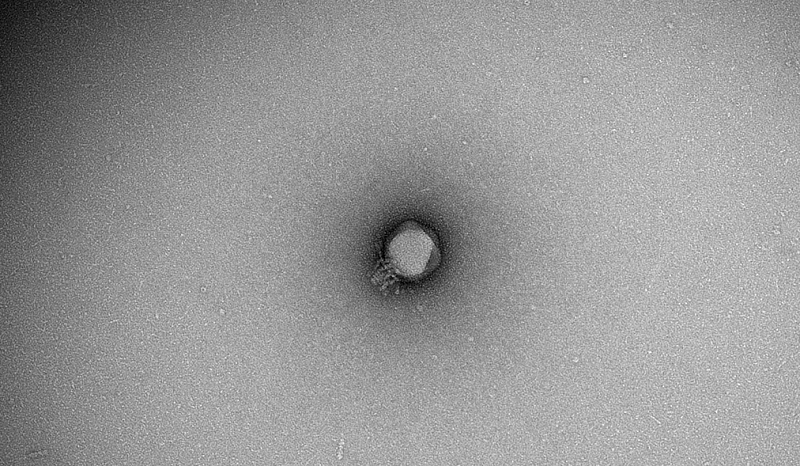Discovery of novel phages with therapeutic applications
The FAME lab has developed collaborations with SA pathology, discovering new phage for Stenotrophomonas and Achromobacter strains infecting people with Cystic Fibrosis (CF). Our mission is to apply this newly discovered phage to patients across Australia, helping to alleviate the bacterial burden in their lungs and improve patient health and outcomes.
Our team includes Professor Robert Edwards, Dr Morgyn Warner, Dr, Sarah Giles, Clarice Harker, and Will Plewa. Our collection so far includes 54 bacterial strains from people with CF and ten newly identified phages currently being investigated for their potential in phage therapy.
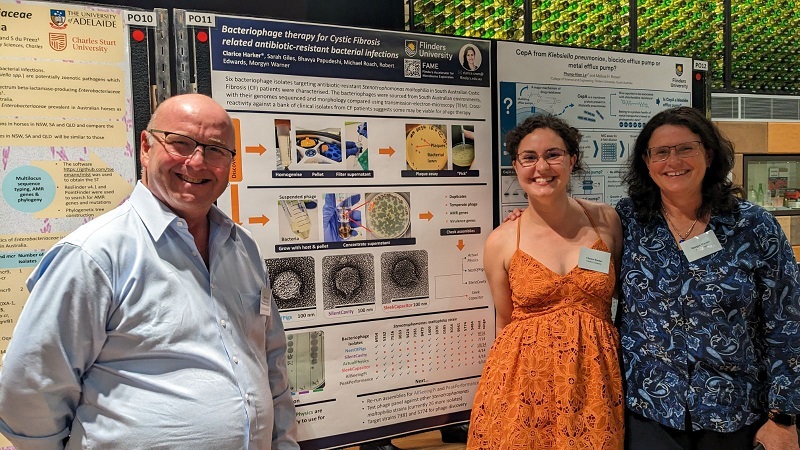
Making Metagenomics Measurable
This project aims to revolutionize our view of the microbial world once more by transforming microbiome studies from relative counts of organisms to actual numbers of microbes. This project expects to impact all the microbiome studies that are being performed worldwide by unveiling the actual numbers of microbes. Expected outcomes of this project include new techniques to enumerate the number of bacteria in different environments and new approaches to measure gene expression within individual bacteria in any environment that will be demonstrated with complex microbial communities. This should provide significant benefits because microbes affect every aspect of our lives and those effects are driven by how many microbes are present.
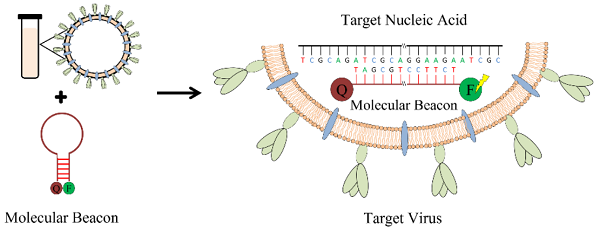
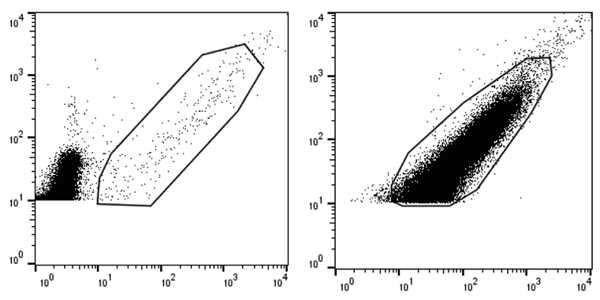
Microbiomes of Cystic Fibrosis in South Australia
At FAME, we have established a collaborative partnership with respiratory physicians at the Women’s and Children’s Hospital and Royal Adelaide Hospital in South Australia generating microbial metagenomic profiles of people with Cystic Fibrosis.
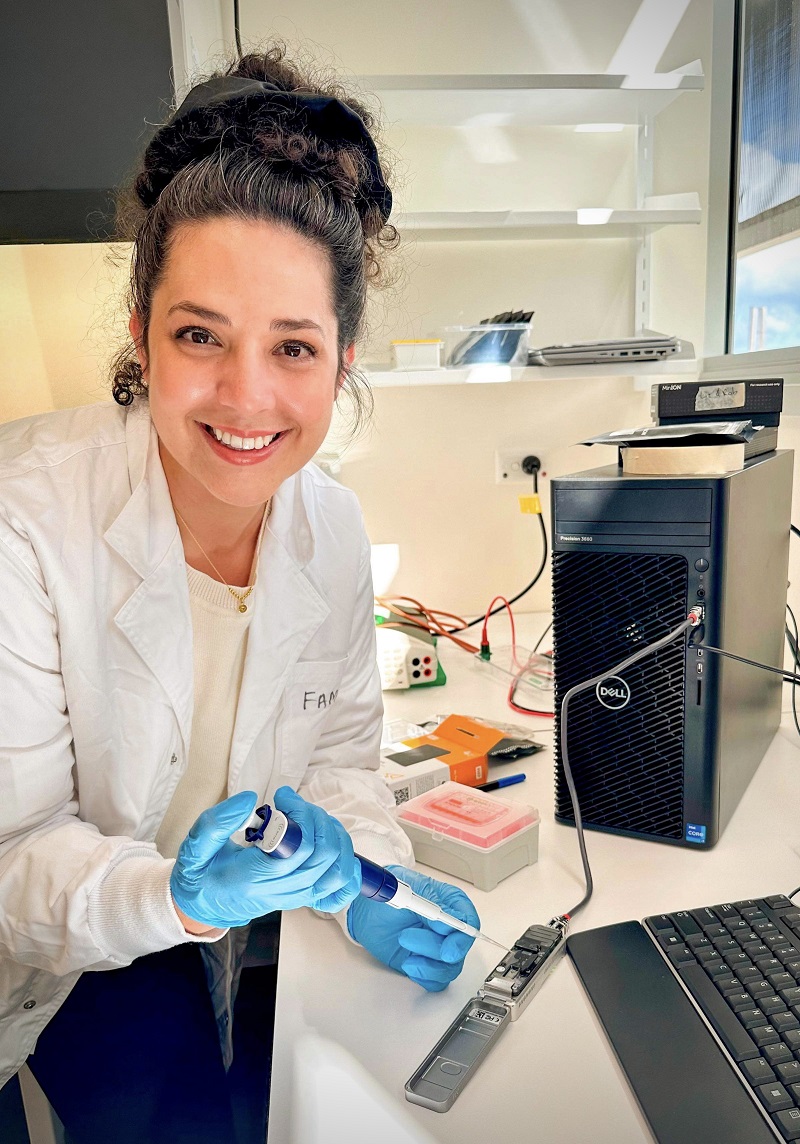
Our multidisciplinary team is committed to integrating microbiome research with clinical practice by utilising DNA sequencing and clinical data to investigate microbial communities’ role in disease progression. Together, we aim to contribute to developing more personalised and effective interventions to improve the lives of those affected by cystic fibrosis and other respiratory-related conditions.
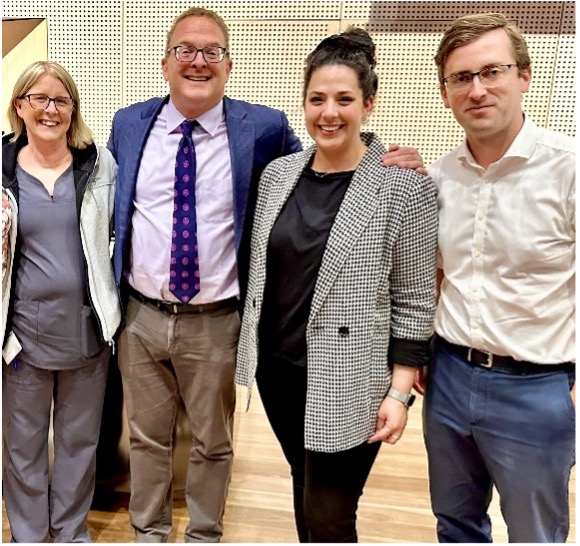
From Left to Right: Dr Jude Morton (RAH), Associate Professor Jon Koff (Yale School of Medicine), Dr Jessica Carlson-Jones (Flinders) and Dr Tom Goddard (WCH and FMC).
Viruses & Inflammatory Bowel Disease
FAME is part of a large international consortium with Addenbrookes Hospital, Cambridge, UK, San Diego State University, California, USA, and Washington University, St. Louis, USA. NIH NIDDK RC2DK116713 funds this project.
This consortium aims to investigate the microbiome’s role in Inflammatory Bowel Disease (IBD), specifically Crohn’s Disease (CD) and Ulcerative Colitis (UC). The consortium has sequenced and analysed hundreds of samples from healthy and IBD case individuals. FAME’s role is to identify and investigate the bacteriophages associated with CD and UC, and to contribute to the development of a specialised pipeline for classifying viral and phage sequences from metagenomic samples.
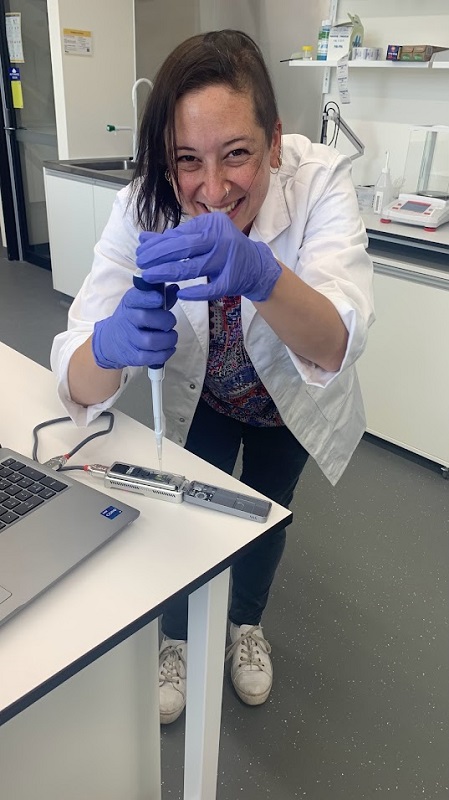
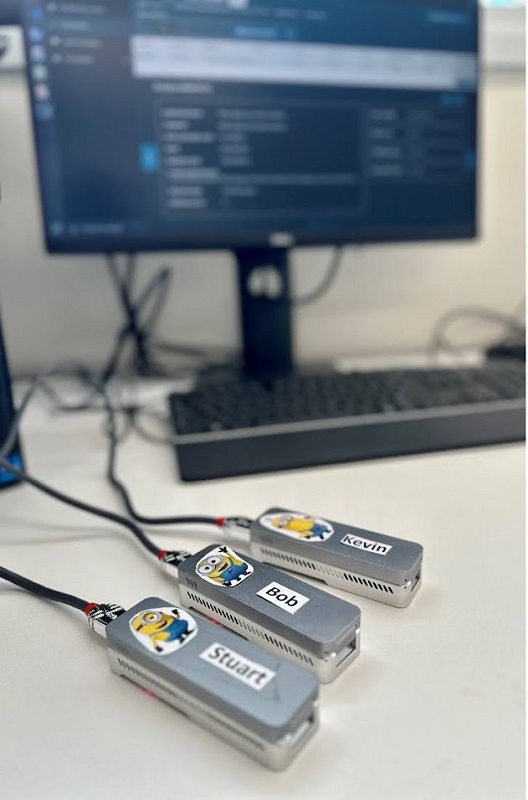
Bacteroides phages
Bacteroides are the most common bacteria in the human gut, and they degrade many complex polysaccharides. The abundance of Bacteroides in the gut is shaped by the phages that infect and kill them. In response, bacteria alter their cell wall composition to limit phage infectivity. We have isolated and sequenced three Bacteroides isolates and 30 phages that infect them. The bacterial genomes reflect the availability of sugars in the human gut. Bacteriophages demonstrate different approaches to overcoming bacterial defences.
